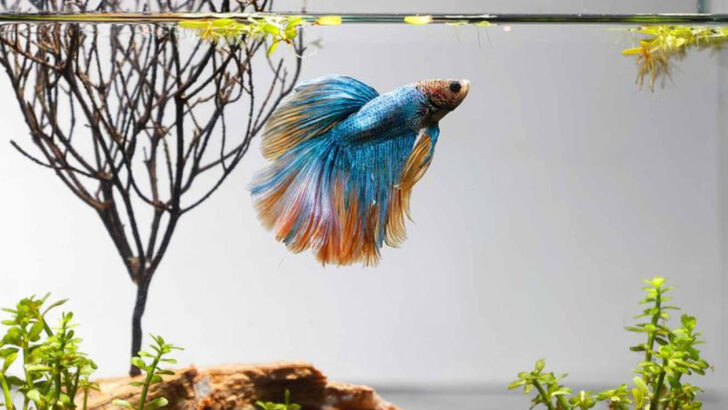Betta fish may be small, but they have big personalities—and even bigger care requirements than most people realize. These dazzling little swimmers are often sold as “easy” pets, but that’s a dangerous myth that can lead to a lot of unhappy, unhealthy fish.
From tiny tanks to the wrong food, bettas suffer more from human mistakes than anything else. And let’s be honest—most of us have made at least one. Maybe you’ve fallen for bad advice at the pet store, or maybe you just didn’t know bettas need more than a bowl and some flakes.
The good news? These mistakes are fixable, and your betta will thank you for it! Whether you’re a first-time owner or looking to improve your betta’s life, avoiding these common errors will make all the difference.
Let’s dive into the top mistakes betta owners make—and how to keep your fish happy, healthy, and thriving.
Overfeeding Your Betta
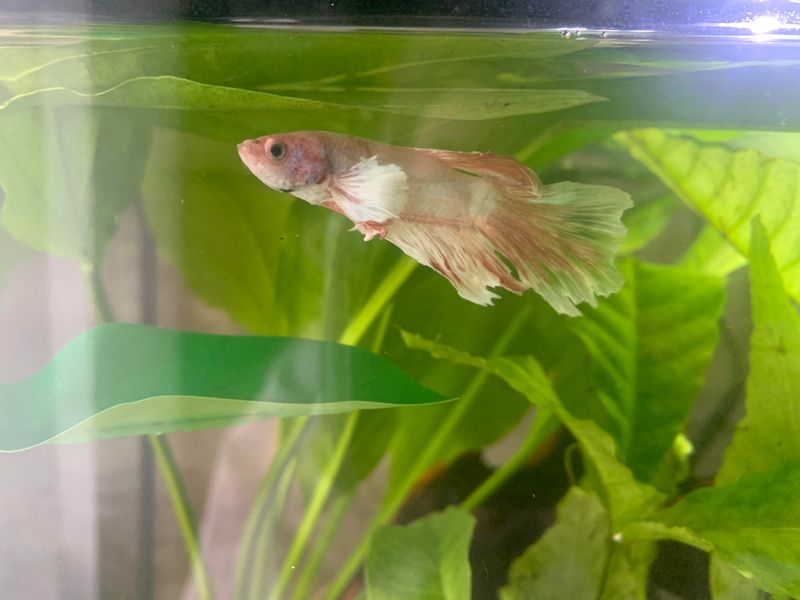
Overfeeding is a common mistake among betta fish owners. Too much food can lead to obesity, swim bladder issues, and a dirty tank. A bloated betta might seem lethargic and struggle to swim properly.
Feed your betta sparingly, offering only as much as they can eat in two minutes, twice a day. This helps maintain their health and keeps the water clean.
Monitor your betta’s reaction to food and adjust the quantity accordingly to avoid wastage and health problems.
Ignoring Water Quality
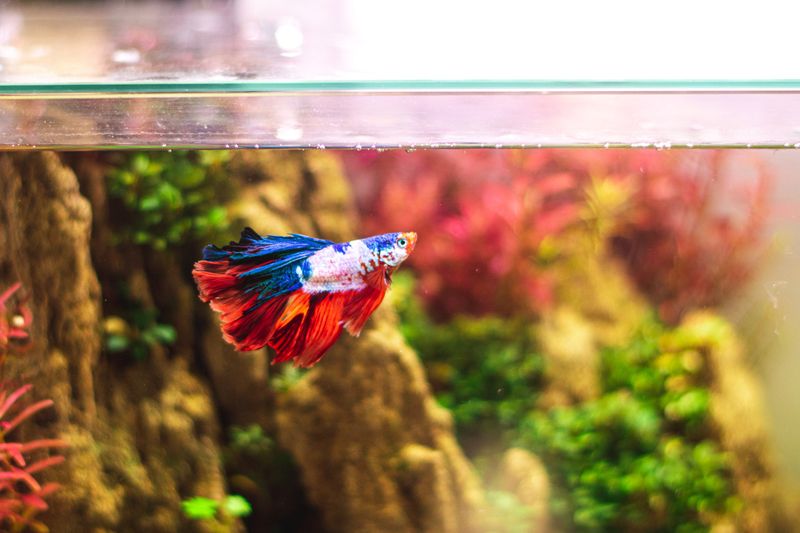
Keeping the water quality optimal is crucial for betta health. Neglecting water changes can result in toxic ammonia and nitrate buildup. Your betta may appear sick or stressed in poor conditions.
Regularly test the water using quality kits to ensure parameters are within safe limits. Perform partial water changes weekly to maintain cleanliness.
A good filtration system aids in keeping the water fresh, but it should not create strong currents that stress the fish.
Using the Wrong Tank Size
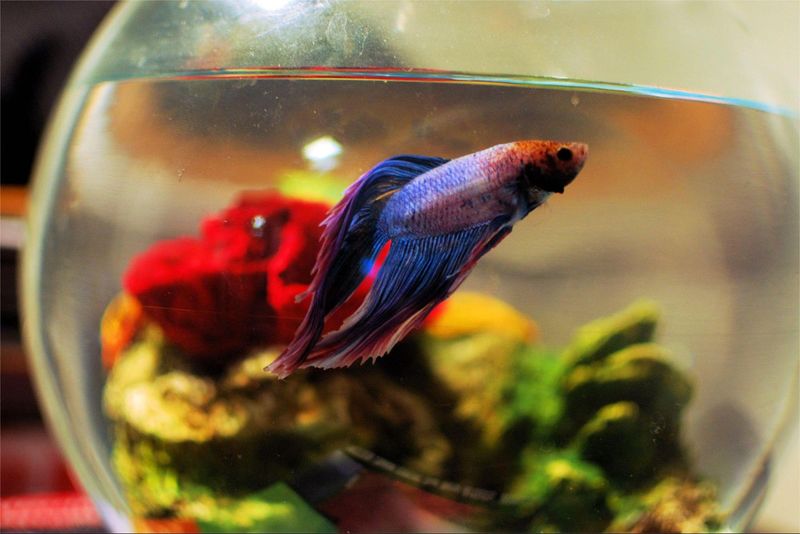
The tank size significantly affects a betta’s well-being. A cramped environment leads to stress and limits natural behaviors. A small bowl or tank is often insufficient.
Betta fish thrive in tanks with a minimum of 5 gallons. This space allows them to swim freely and reduces stress.
Ensuring enough room for plants and decorations prevents boredom and promotes a stimulating environment for exploration.
Incorrect Water Temperature
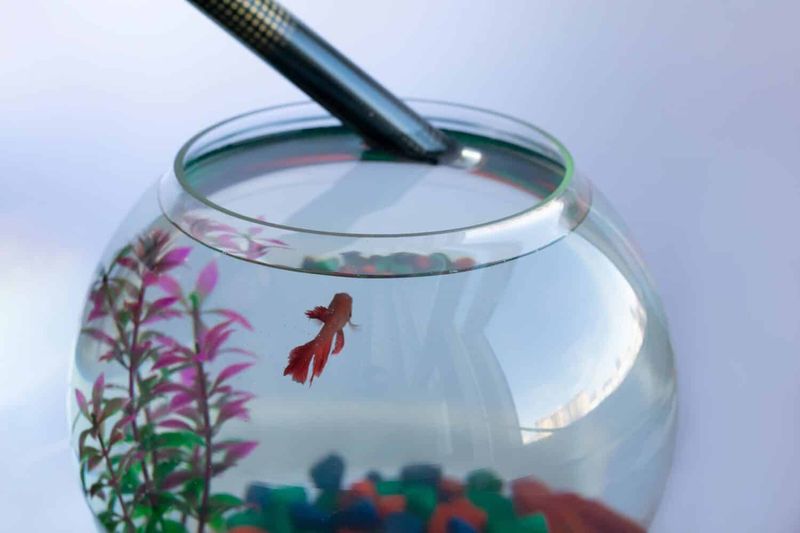
Betta fish are tropical creatures and require warm water to thrive. Incorrect temperatures can cause stress and illness. Water that’s too cold slows metabolism, while too hot can be lethal.
Maintain a consistent temperature between 76°F and 82°F. Use a reliable heater and thermometer to monitor and adjust as needed.
Sudden temperature changes should be avoided to prevent shock and health issues.
Choosing the Wrong Tank Mates
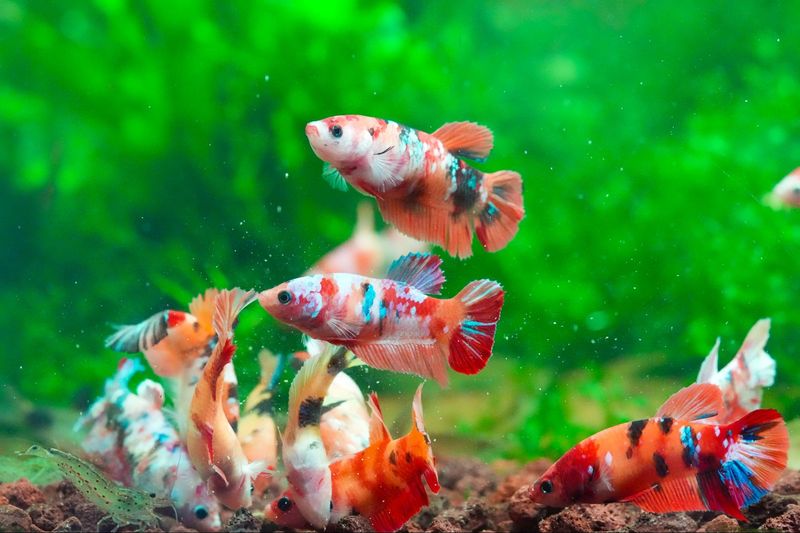
Choosing incompatible tank mates can lead to stress and aggression. Betta fish are territorial and may fight with others.
Avoid housing them with fin-nipping species or other bettas. Suitable companions include peaceful fish like Corydoras or snails.
Always introduce new tank mates gradually to prevent territorial disputes and ensure harmony within the aquarium.
Neglecting Regular Tank Cleaning
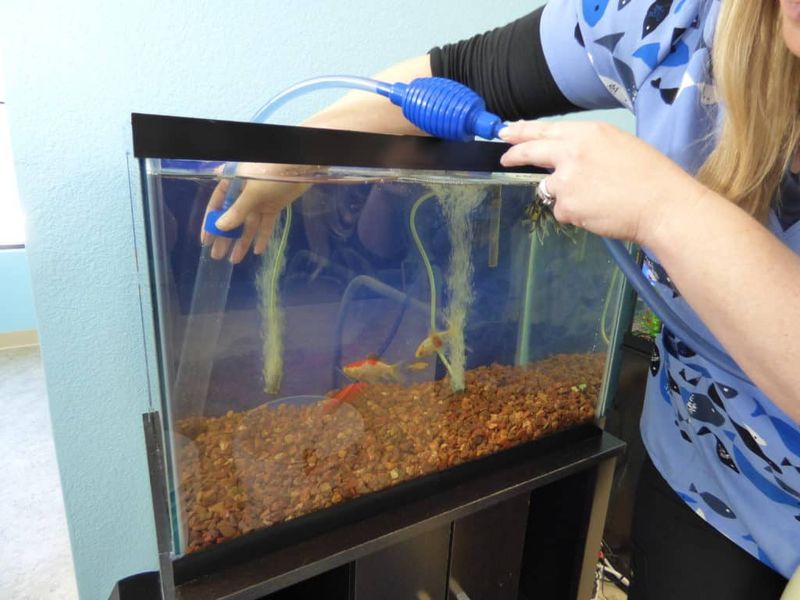
Regular tank maintenance is essential for a healthy environment. Neglecting cleaning leads to algae buildup, poor water quality, and disease.
Schedule routine cleanings, including gravel vacuuming and glass scraping, to keep the tank pristine.
Clean and replace filters as needed to ensure efficient water circulation and filtration, promoting the overall well-being of your betta.
Overlooking Illness Signs
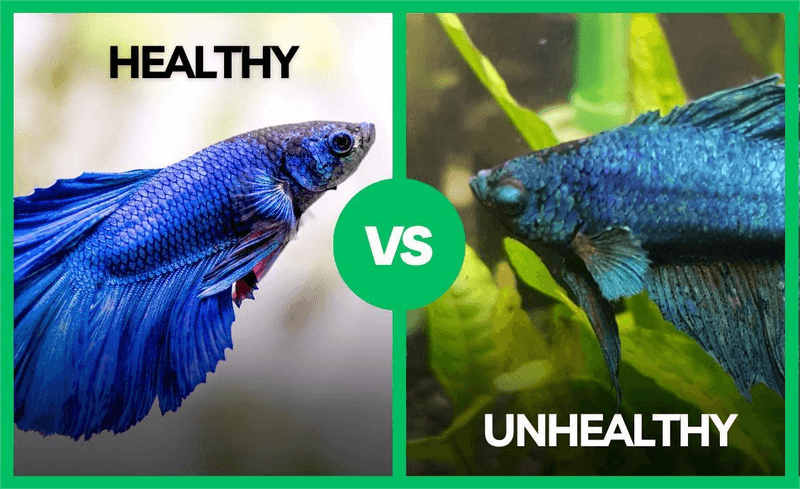
Recognizing signs of illness early can save your betta’s life. Common symptoms include clamped fins, faded colors, and abnormal swimming patterns.
Monitor your fish daily for changes in behavior or appearance. Quick intervention with appropriate treatments can prevent diseases from advancing.
Ensure a stress-free environment by maintaining water quality and proper nutrition to reduce the risk of illness.
Not Providing Enrichment
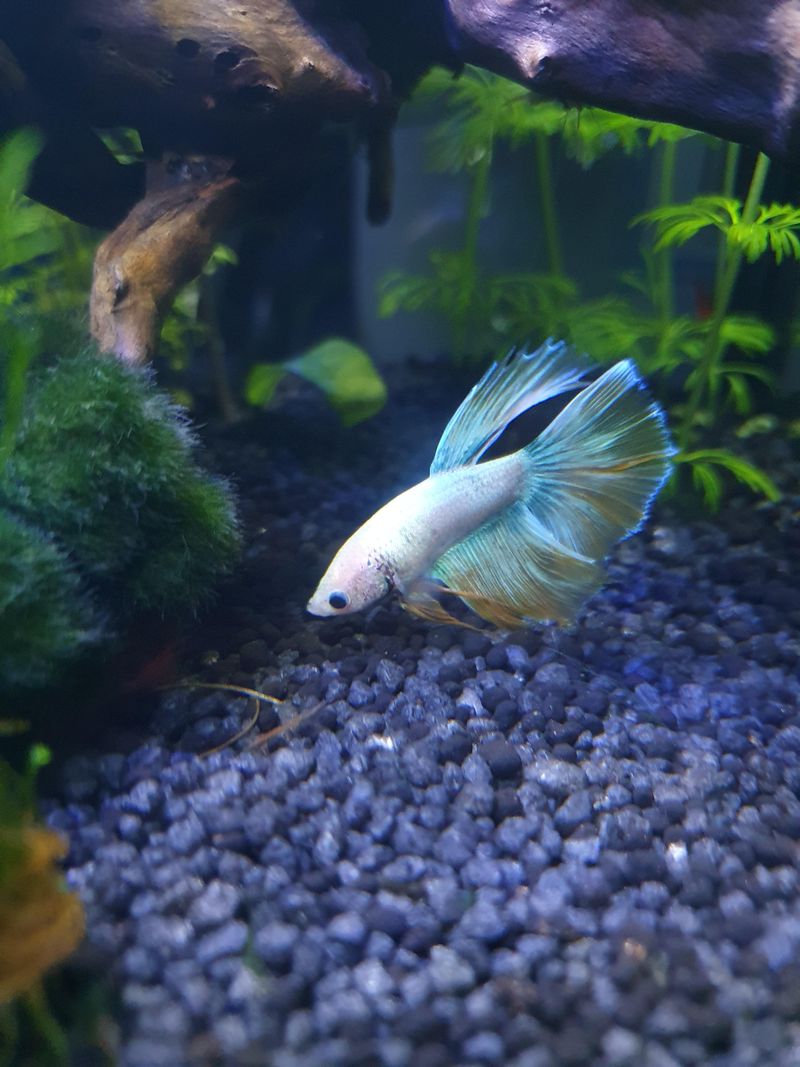
Betta fish need mental stimulation to prevent boredom. An empty tank can lead to lethargy and stress.
Add plants, tunnels, and hiding spots to the aquarium to engage your betta.
Regularly change the setup to keep the environment interesting, allowing your betta to explore and interact with its surroundings.
Inadequate Diet Variety
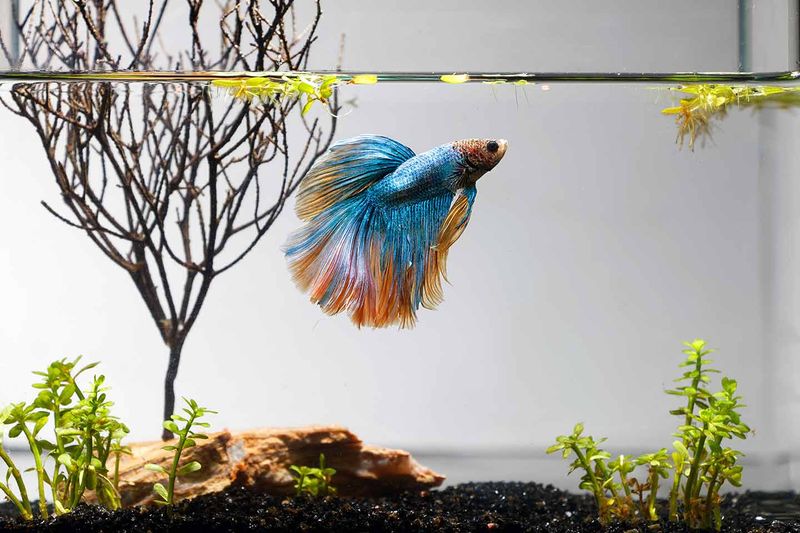
A varied diet is essential for a betta’s health. Feeding only one type of food can result in nutritional deficiencies.
Offer a mix of high-quality pellets, frozen, and live foods such as brine shrimp or daphnia.
This diversity ensures balanced nutrients, promoting vibrant colors and vitality in your betta.
Improper Acclimation Process
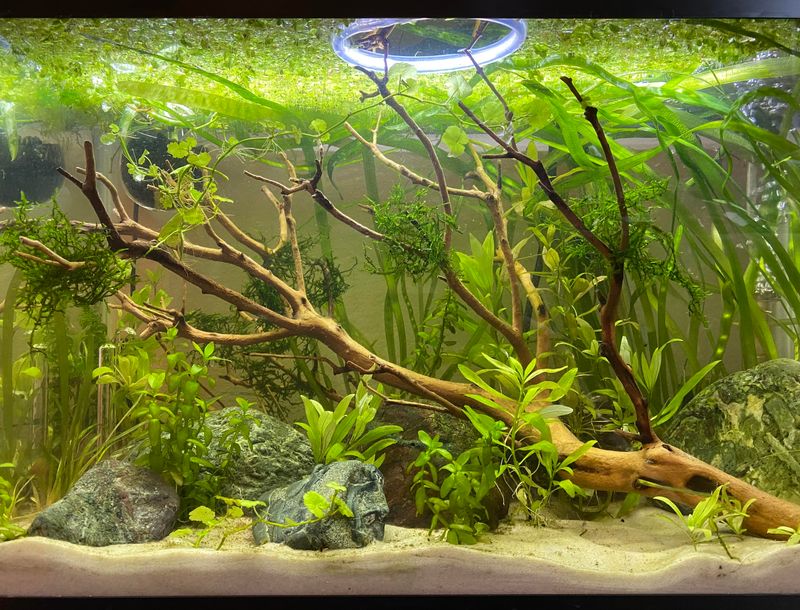
Introducing a betta to a new environment requires careful acclimation. Sudden changes can shock the fish, causing stress or death.
Gradually introduce your betta to the tank by floating the bag in the water, slowly mixing tank water into the bag over time.
This gentle transition helps the fish adjust to new parameters, ensuring a smoother acclimation process.
Ignoring Behavioral Cues
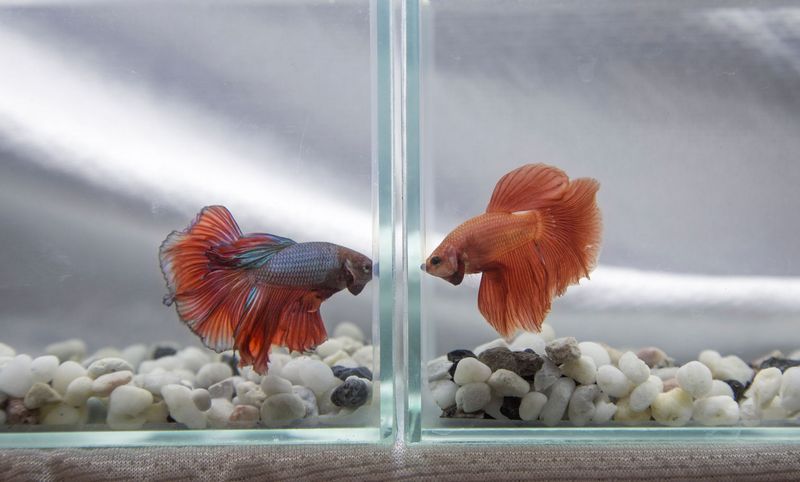
Understanding your betta’s behavior is key to addressing its needs. Ignoring cues like excessive hiding or aggression can indicate underlying problems.
Observe your fish regularly to identify any changes in routine or demeanor.
Address potential issues like water quality, tank mates, or health concerns to improve your betta’s quality of life.
Using Unsuitable Decorations
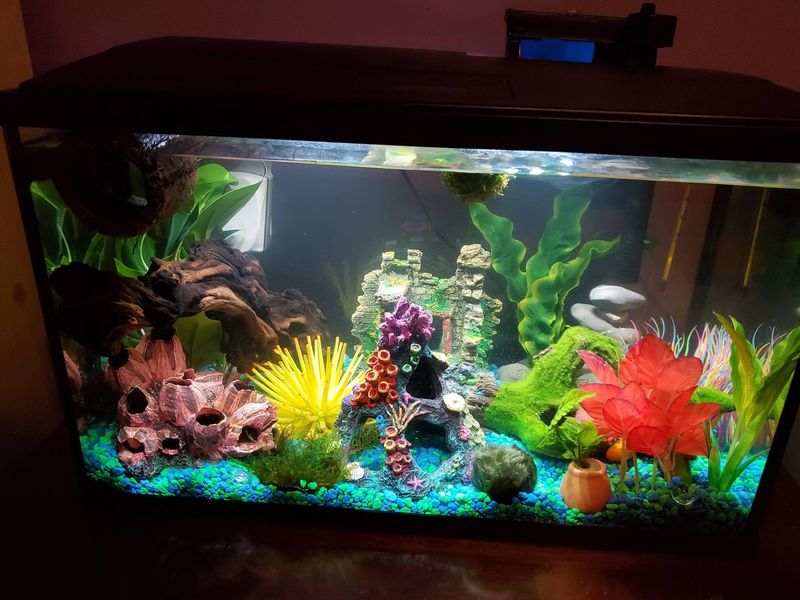
Decorations enhance a tank’s appearance but must be chosen carefully. Sharp or rough items can injure delicate betta fins.
Opt for smooth, rounded decorations and avoid rough materials that could harm your fish.
Regularly inspect and replace any items that may pose a risk, ensuring a safe and aesthetically pleasing environment.

